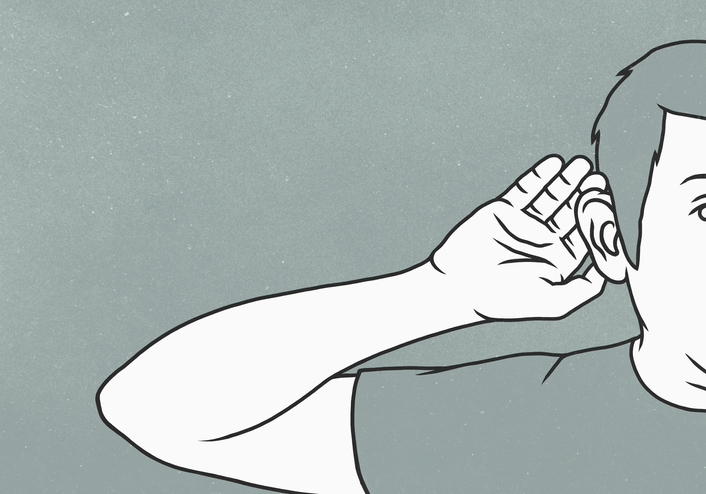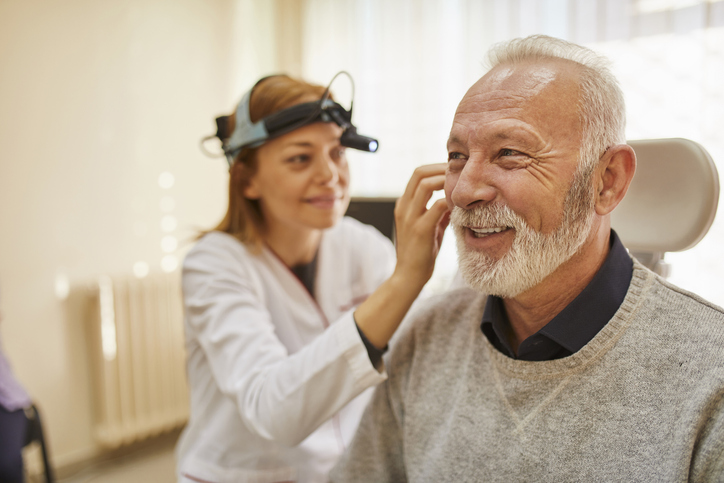Hearing Loss. Another Reason Why Diabetes Can Be So Devastating

By Joy Stephenson-Laws, JD, Founder
Part of my morning wellness ritual involves stepping out into nature, letting the sunlight hit the skin on my face and hands and acknowledging how blessed I am to have the five senses: vision, smell, touch, taste and hearing.
According to a 2016 study published by Science Daily, 94 percent of older adults have at least one sensory deficit. Furthermore, 38 percent have two, and 28 percent have three, four or even five. As you can probably imagine, having a sensory deficit can lead to loss of independence, a sedentary lifestyle, depression and more.
Today is World Hearing Day, and the World Health Organization (WHO) reports that more than 1.5 billion people globally live with hearing loss and that this number could rise to 2.5 billion by 2050.
Of course, people can be born deaf or suffer from extreme hearing loss due to a traumatic injury, however, today I want to focus on age-related hearing loss, particularly as it relates to certain underlying health conditions.
According to an article from American Association of Retired Persons (AARP), the vast majority of people over the age of 50 do acknowledge how important hearing is to overall health, however, they are not doing everything in their power to preserve their hearing. For example, many are not proactive about reducing their exposure to loud noise or getting regular hearing health check-ups.

People also need to know that having type 2 diabetes, which affects more than 30 million Americans, has the potential to cause hearing loss.
“Diabetes can lead to nerve damage that affects many parts of the body, including your hands, feet, eyes, and kidneys. Diabetes can also cause nerve damage in your ears,” according to the Centers for Disease Control and Prevention (CDC).
“Over time, high blood sugar levels can damage small blood vessels and nerves in the inner ear. Low blood sugar over time can damage how the nerve signals travel from the inner ear to your brain. Both types of nerve damage can lead to hearing loss.”
Furthermore, hearing loss is twice as common in people with diabetes compared to people of the same age who do not have diabetes. Even those who are prediabetic have a 30% higher rate of hearing loss compared to those with healthy blood sugar levels.
Protect your hearing by preventing or better managing diabetes.Because it is such a prevalent health issue, I probably write about diabetes more than any other blog topic.
I believe that consuming ultra-processed foods is the main culprit behind why so many Americans are suffering with this devastating illness. Stick to natural, nutrient-dense foods such as fruits, vegetables, legumes, whole grains and lean proteins such as fish. It is also advised to get familiar with healthy swaps. For example, if you tend to be a lover of potato chips, make your own sweet potato fries instead.
It is also good to keep active, especially if you are older. Reportedly, 50 percent of Boomers are prediabetic. We can better manage our blood glucose levels by maintaining an active lifestyle. When you exercise, or increase your activity level in any way, your muscles first use the glucose they have stored for energy and then take some glucose from your blood for the rest.This helps reduce the amount of glucose circulation in your body, your glucose levels come down, and your body more readily maintains an optimal level of glucose in your blood.
Getting adequate Vitamin C is also crucial along with scheduling routine nutrient tests in order to identify any nutrient imbalances or deficiencies you may have. Being nutritionally unbalanced may increase your risk of developing diabetes and other diseases. If the test reveals you have too much or too little of a certain nutrient, a competent healthcare professional can work with you on making the necessary dietary changes and recommend quality supplements if necessary.
Also check out these pH Labs blogs on how to protect your precious hearing.
Enjoy your healthy life!
Disclaimer: This article is not intended to provide medical advice. Please consult with your doctor or another competent healthcare practitioner to get specific medical advice for your situation.
The pH professional health care team includes recognized experts from a variety of health care and related disciplines, including physicians, attorneys, nutritionists, nurses, and certified fitness instructors. This team also includes the members of the pH Medical Advisory Board, which constantly monitors all pH programs, products, and services. To learn more about the pH Medical Advisory Board, click here.







